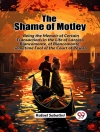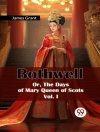In ‘Valerius: A Roman Story, ‘ John Gibson Lockhart crafts a richly woven narrative set against the backdrop of ancient Rome, illuminating the complexities of honor, loyalty, and personal sacrifice. Lockhart’s literary style merges elegant prose with vivid characterizations, immersing the reader in the historical nuances of the Roman world. Through the lens of the titular protagonist, Valerius, the text explores the clash between personal conviction and the prevailing social order, reflecting the moral dilemmas faced during a tumultuous era in Roman history. Lockhart’s deft use of dialogue and descriptive imagery invites readers to engage deeply with the text, while his meticulous attention to historical detail situates the narrative within the broader context of 19th-century Romanticism. John Gibson Lockhart, a prominent Scottish author and editor, was significantly influenced by his background in Scottish literature and his connections with literary figures such as Sir Walter Scott. His experiences in the literary circles of his time enriched his understanding of character development and the human condition, likely inspiring him to delve into the historical context of Rome. Lockhart’s interest in exploring themes of heroism and ethical ambiguity resonates throughout ‘Valerius, ‘ reflecting not just the period it depicts but also the era in which he was writing. I highly recommend ‘Valerius: A Roman Story’ to readers who appreciate historical fiction infused with moral complexity and character-driven narratives. Lockhart’s exploration of timeless themes and his eloquent prose make this work not only an engaging read but also a thoughtful reflection on the nature of duty and the human spirit. This book appeals to both lovers of classical literature and those seeking a deeper understanding of the intersection between personal and societal values.
Over de auteur
John Gibson Lockhart (1794–1854) was a notable Scottish writer and biographer, best remembered for his intimate and definitive biography of his father-in-law, Sir Walter Scott. Born in Cambusnethan House in Lanarkshire and educated at the University of Glasgow and Balliol College, Oxford, Lockhart was as much a man of letters as he was a member of the legal fraternity, having trained as a barrister. However, his literary inclinations led him down a different path. Lockhart contributed to Blackwood’s Magazine and eventually became the editor of the Quarterly Review, wielding considerable influence in the literary circles of his time.
His foray into novel-writing produced works such as ‘Valerius: A Roman Story’ (1821), which showcased his narrative flair and deep engagement with historical themes. ‘Valerius’ is a testament to Lockhart’s skillful blending of detailed classical knowledge with the storytelling techniques of the historical genre, which was burgeoning at the time. Lockhart’s literary style is characterized by its rich detail, evocative historical settings, and a keen insight into human nature and societal norms. Despite his other literary achievements, it is ‘Memoirs of the Life of Sir Walter Scott, Bart.’ that remains his magnum opus, securing his position as an eminent figure in the 19th-century literary canon. His legacy persists in his portrayal of one of Scotland’s most celebrated literary figures, and in the reflection of the era’s cultural and intellectual preoccupations within his works.












